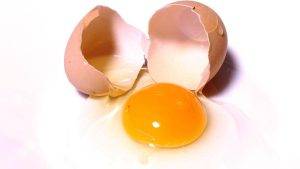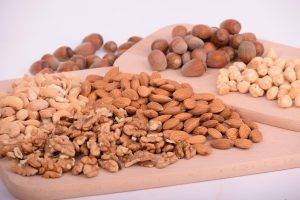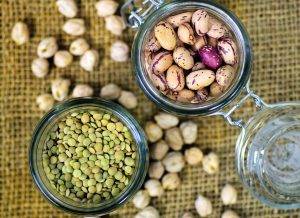Does your kid need Animal based protein for their better growth and development?
“The importance of Protein is inevitable when it comes to your kid’s growth and development”
Role of protein in the development of the baby
 Protein is considered an important nutrient in the human everyday diet. They’re the building blocks of body tissue cells. Protein is necessary for repairing and maintaining vital tissues. It is crucial for the growth and functioning of all vital organ systems. They work as enzymes, hormones, immune cells, cellular messengers, and even sources of metabolic energy molecules in the body. Protein builds our muscles, fuels the brain, and keeps skin and hair healthy. It even triggers neurotransmitters in the brain which further improves the mood, maintains the blood sugar level, and even improves concentration. Hence, the need for protein is vital for the growth and development of every child.
Protein is considered an important nutrient in the human everyday diet. They’re the building blocks of body tissue cells. Protein is necessary for repairing and maintaining vital tissues. It is crucial for the growth and functioning of all vital organ systems. They work as enzymes, hormones, immune cells, cellular messengers, and even sources of metabolic energy molecules in the body. Protein builds our muscles, fuels the brain, and keeps skin and hair healthy. It even triggers neurotransmitters in the brain which further improves the mood, maintains the blood sugar level, and even improves concentration. Hence, the need for protein is vital for the growth and development of every child.
Quality of Protein matters
 Nowadays the hype is more about the quantity of protein a child requires. But it is a lesser-known fact that the proteins in the human body are made up of 20 core amino acids. Out of which 9 of them are considered essential amino acids which can only be derived from our diet and they include.
Nowadays the hype is more about the quantity of protein a child requires. But it is a lesser-known fact that the proteins in the human body are made up of 20 core amino acids. Out of which 9 of them are considered essential amino acids which can only be derived from our diet and they include.
- Histidine
- Leucine
- Isoleucine
- Lysine
- Methionine
- Phenylalanine
- Threonine
- Tryptophan
- Valine
Specific dietary sources of protein can offer full complementary needs of the body.
Animal-based proteins
 High-quality proteins, which are also considered Complete proteins include animal-based protein sources, such as egg, meat, poultry, fish, milk, and milk products like yogurt, cheese, and fresh cream. Among these high-quality protein sources, some of them even provide important nutrients like Vitamin B, E, Iron, Zinc, and magnesium. But everything comes with caution. Consumption of too much animal protein is also a bad thing. It can trigger issues, unhealthy weight gain, and increased blood sugar levels.
High-quality proteins, which are also considered Complete proteins include animal-based protein sources, such as egg, meat, poultry, fish, milk, and milk products like yogurt, cheese, and fresh cream. Among these high-quality protein sources, some of them even provide important nutrients like Vitamin B, E, Iron, Zinc, and magnesium. But everything comes with caution. Consumption of too much animal protein is also a bad thing. It can trigger issues, unhealthy weight gain, and increased blood sugar levels.
Plant-based proteins
 Most plant-based proteins are considered Incomplete Proteins as they lack either one or the other essential amino acid. But the good news is that there are nearly 13 sources of complete protein plant sources for vegetarians and vegans. Moreover, if you include variations in protein sources in the kid’s diet throughout the week, all the essential amino acids will be consumed.
Most plant-based proteins are considered Incomplete Proteins as they lack either one or the other essential amino acid. But the good news is that there are nearly 13 sources of complete protein plant sources for vegetarians and vegans. Moreover, if you include variations in protein sources in the kid’s diet throughout the week, all the essential amino acids will be consumed.
 So, hence it can be concluded that you don’t need to depend mostly on animal-based protein for complete protein requirements. If you’re a vegetarian/vegan, include at least one source of protein in each meal for your growing kid. Don’t stick to just one kind of protein source in your everyday diet. Consider a variety of protein sources throughout the week. While eating your protein, don’t skip the carbohydrate part. Include the complex carbohydrate-rich sources along with protein for better digestion and absorption.
So, hence it can be concluded that you don’t need to depend mostly on animal-based protein for complete protein requirements. If you’re a vegetarian/vegan, include at least one source of protein in each meal for your growing kid. Don’t stick to just one kind of protein source in your everyday diet. Consider a variety of protein sources throughout the week. While eating your protein, don’t skip the carbohydrate part. Include the complex carbohydrate-rich sources along with protein for better digestion and absorption.
For example, grains like rice are too low in lysine to be considered a complete protein, When lentils and beans are higher in lysine when consumed together, you can be sure that all nine amino acids are obtained
Here is a List of 10 Complete protein plant sources for vegetarians and vegan
